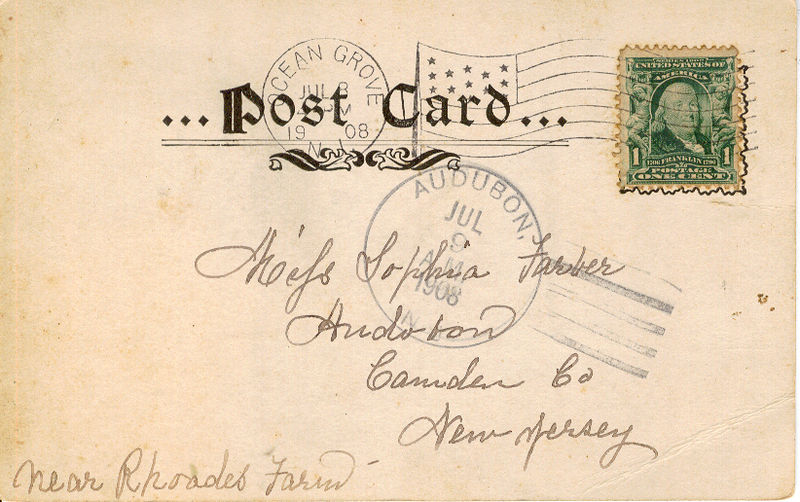Tourism From The Comforts of Home
When Google Street View recently hit the roads of my native Canada, it blew my mind. Here I was, sitting 6,426 kilometers away at my desk in Aarhus, Denmark staring at my green aging front door in Toronto, Ontario, as if the time and space between us was a figment of my imagination. As I peered into my laptop’s glass screen, looking for hints of familiarity, I was struck with a feeling of unease. Perhaps I was not the only one staring at my house? Maybe there were thousands of other people peering into the windows of my childhood home without my permission.
Vagabondish is reader-supported. When you buy through links on our site, we may earn a small affiliate commission. Read our disclosure.
Would I feel cheated if I went back and looked at all my previous lodgings around the world, or would it give me a sense of comfort to see they are still there many years later? Do I dare pull up landmarks I’d been dying to visit to see them from my lackluster 13.3-inch computer screen or do I wait to experience them in person? This led me to the question of, how will this change my perception of the world, and better yet, how I travel?

Google Street View Car in Chinatown, Toronto © Andrew Currie
The introduction of Google Street Views in many countries is one of the many steps taken in 2009 towards changing the ways individuals interact with the world in this age of new media and technology. I could go on to tell you how Google Street Views has blurred the lines between privacy, misrepresentation and censorship. But, despite all the unfortunate confidentiality issues this may bring to those in fear of having their privacy jeopardized, we have to consider all the thrilling possibilities this new technology embodies.
We must acknowledge all the new doors the digital age has opened not only for the world of traveling, but also in the pursuit of education and communication as well. Below are just a few reasons why technology has played such an important role in the life of an avid traveler and how it has paved many wonderful new paths for vagabonds like myself.
Communication Made Easier
My friend once told me an incredible story about how her grandparents were physically separated for seven years, but were able to keep the spark alive through handwritten love letters every couple of months. As romantic as the story sounds, it also reminds me of a time before the Internet in which, keeping in touch with loved ones seemed like a daunting and slow process. Now, with the widespread availability of Internet and e-mail, my mother worries about my well-being if she hasn’t heard from me in a couple of days, even if I’m backpacking through a remote tropical forest or island-hopping in places where they don’t have clean running water.
Ubiquitous internet availability has dramatically changed the way in which we keep in touch, especially when we are far from home. When meeting new friends in hostels or on the road, we exchange e-mail addresses rather than postal addresses. When looking for cheap accommodations, we get in touch with people who offer couches to crash on couchsurfing.com or through word of mouth. When applying for ESL jobs abroad, we find past participants on Facebook or Myspace and get in touch with them to see what kind of pointers or information they have to offer.
When I moved to Ireland in 2003, I was put in contact with a group of students from the same program (SWAP) that would be joining me from Canada. Since this was before the advent of Facebook and thus, extreme social networking, we just wrote each other a handful of e-mails and decided to meet at the same hostel when we all arrived. We were virtually strangers until that one meeting day.
Now, six years later, before my Masters classes started in Europe, the group of 49 of us from around the world had created Facebook groups, event invites for the first couple of days of our arrival, plotted addresses into Google Maps to see how close we would all be living and one by one, we shared our life stories. After months of networking and talking online, these people were no longer strangers, but rather companions – well before I met them in person. Entering into this new program, in a foreign culture and environment, was not as frightening, because we knew we had each other.
Seeing the World From the Comforts of Your Home
Whether you are stuck at home, fantasizing about seeing the world, or traveling abroad wishing you were home for the holidays, the Internet has made the world a borderless space where the concept of location or place is just a scroll and click away.
A century ago, none of this would have been possible and a mere postcard would have felt exotic, as if you had experienced a glimpse into a different culture from the single image on the front. Now, between the vast amount of images and videos available on the internet, you can “travel” from the comforts of home for however long you desire.
You can experience the Eiffel Tower on a sunny day at a 360° horizontal and 290° vertical panoramic view from Google Street View. You can witness the Running of the Bulls in Pamplona in high-definition video, and browse images of the remote and extraordinary Galapagos Islands on Flickr.
On one account, an artist by the name of Bill Guffey from Burkesville, Kentucky who is unable to travel, has created more than 100 art pieces using Street View to see different locations around the world and then paint them accordingly. His paintings include a phone box in Trafalgar Square, a solitary house in Scotland, a New York taxi and a canal boat in Amsterdam. This is just one of the many examples of how the internet is opening up the world to those who cannot travel for whatever reason.
Recently my parents went on a road-trip across Route 66 in the US. Every couple days or so, when they had arrived somewhere new, they would call me on Skype to show me where they were staying and give me a 360° tour on their laptop of they’re current surroundings. Not only was I able to see all their photos from their trip, as they made their way from East to West, but here I was peering down into overwhelming and stimulating Las Vegas from their hotel room at the MGM Grand, in real time. I saw the water-fountains bursting with life, the buzz of the people in the streets and felt the shiny sun from above. “It doesn’t get much better than this,” I thought to myself, until I realized ”¦ I wasn’t there. I was in Aarhus, Denmark where the people above me were practicing piano, my study notes scattered around me, and outside it was dark, rainy and cold. Still.

Ocean Grove Post Card © Roundhere44
The Creation of Global Citizens
The internet has made traveling easier, safer, cheaper and of course more widely accessible. I like to think it’s also shaping the course for this generation and generations to come in creating globally-minded citizens. If information is the key to knowledge, then with the widespread access to online news, discussion forums and citizen journalism, people across the world now have a platform on which they can discuss, create, argue, inform, swap ideas and learn about the world outside of their small borders. Tolerance, peace and awareness are all positive products of the way in which the internet has disseminated information over the years. The internet has opened so many doors to new opportunities, focusing on the more positive attributes that technology offers is far more rewarding for all of us in the long term.
We have come a long way during the last century and the very idea of ”˜travel’ alone has dramatically changed. I am extremely excited, curious and nervous to see what the next few years will bring (Hellloooo, time travel capsules!) and look forward to documenting the changes in the way it affects the avid-adventure seeker.



